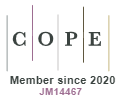Barriers and perspectives for electric power generation out of photovoltaic solar panels in the brazilian energy matrix
DOI:
https://doi.org/10.5585/geas.v9i1.17157Keywords:
Photovoltaic Energy, Tax incentives, Public policies.Abstract
Research Objective: This research aims to identify issues and opportunities for the expansion of electric power generation with large-scale photovoltaic solar cells in Brazil.
Methodology/approach: The methodology includes in-depth interviews with multiplestakeholders, including industry, public sector, academia, and Non-Governmental Organizations representatives.
Originality/Relevance: Despite the progress in public policies to incorporate new measures to foster photovoltaic solar energy use, results are still quite insignificant. Therefore the main contribution of this research is to help to understand the main reasons for the low level of participation in photovoltaic solar energy use in the Brazilian energy matrix.
Main results: A favorable mix of public policies, including subsidies and financing, were fundamental for solar energy growth in the countries studied. In Brazil, however, public policy is fragmented and incomplete, as financing mechanisms and long-term low interest rates for manufacturers, investors and consumers are lacking in order to significantly expand the use of this alternative.
Theoretica/Metodological contributions: The absence of strategic vision from the government and the business sector hinders seizing solar energy use in Brazil preventing the country from the benefits associated to its comparative advantages in this segment.
Conclusion: Among the opportunities missed by the country stand out the jobs generated in the production chain and its contribution to social inclusion and reduction of environmental impacts when compared to traditional systems of power generation.
Downloads
Downloads
Published
How to Cite
Issue
Section
License
Copyright (c) 2020 Revista de Gestão Ambiental e Sustentabilidade

This work is licensed under a Creative Commons Attribution-NonCommercial-ShareAlike 4.0 International License.









